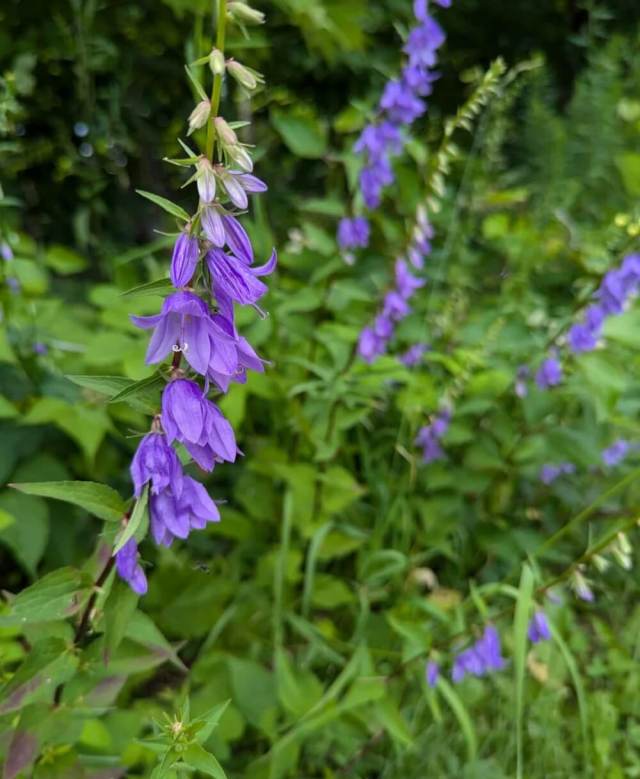A gardener's work is never done, as one resident of Ontario, Canada, found out.
On the r/whatisthisplant subreddit, the original poster shared a picture of a mysterious plant they discovered in their green space and were worried that it might be invasive.
"I cut down my buckthorn and have been attacking my lilly of the valley and periwinkle," they captioned the post. "Then come back from holiday to find this blooming? It is creeping bellflower?"

Redditors quickly identified the purple flowering plant and confirmed the OP's suspicions.
"I believe that's creeping bellflower, and yes it is invasive," read the top comment.
The Spruce explains that creeping bellflower, while attractive, chokes out other plants and is "almost impossible to eradicate." The publication notes that creeping bellflower was brought to North America as an ornamental and that its deep root system of long tubers allows it to take over green spaces.
It is one of many irritating invasives that gardeners are growing tired of, joining a list featuring English ivy, kudzu, bamboo, and wisteria.
These plants can grow quickly and abundantly, crowding out native species and depriving them of vital sunlight, soil, and water. The knock-on effects of thriving invasives can be profound, as they can deteriorate soil quality, reduce water retention, and take habitat and food sources away from insects and small creatures, including essential pollinators.
If an invasive has arrived in your yard unintentionally or was present before you inherited your plot, it's essential to get on top of the situation before it grows out of control.
🗣️ What's the hardest thing about taking care of your yard?
🔘 Mowing the lawn 🏡
🔘 Controlling weeds 🌿
🔘 Keeping pests at bay 🐿️
🔘 I don't have a yard 🤷
🗳️ Click your choice to see results and speak your mind
This Redditor's plight underlines the importance of planting native species in your garden to support rather than hinder biodiversity. But the benefits don't end there. Native plants require significantly less attention because they are well suited to local soil and weather conditions, and since they aren't as thirsty, they will help keep your water bills down.
"Hopefully you have a fire pit," one comment read. "Do not try to compost. Either burn this garbage or put it in the bin. I've been fighting a patch for 8 years. The rhizomes are sneaky."
"Campanula rapunculoides, one of the more vicious plant pests known to man, extremely difficult to eradicate owing to its rhizomatous root system which breaks off into a million pieces when you try to dig it out and it is a prolific seeder, do your best to rip off the flowers as soon as you see them," another added. "Incredibly I have seen it for sale in garden centers."
Join our free newsletter for easy tips to save more and waste less, and don't miss this cool list of easy ways to help yourself while helping the planet.









